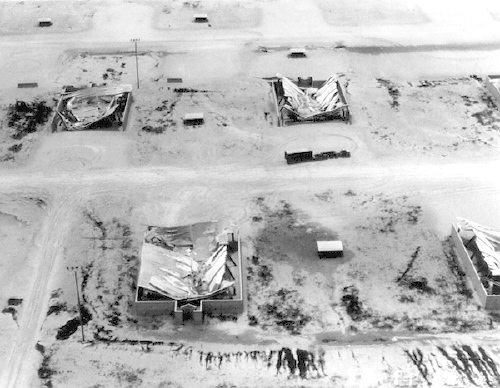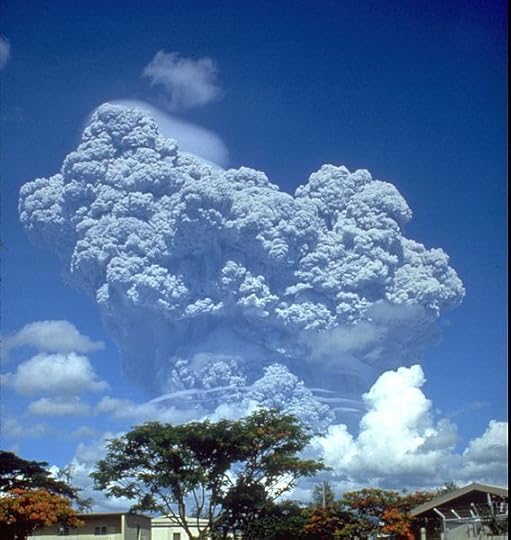Jim Pascual Agustin's Blog, page 46
February 20, 2012
Sea Fireflies of Mindoro
Sea Fireflies of Mindoro
for Veronica
That was the last time
We laughed like children.
Water warm as the tropical air,
It was impossible
To grow cold and wish to leave
That darkening, calm beach.
We took moments to see
The water held
No mere reflection
Of the silent bursting of stars.
Points of light gathered
Round our limbs.
Wave a hand and they grew more
Luminous. We were surrounded.
Stilled. Galaxies
Unfurled with the gentlest
Sway and curl
Of our fingertips.
Beating lights traced our skin
That would never again be this
Close to constellations,
This warm.
-o-
Veronica is a very good friend whom I've known for many years. We call her Barok – the name of a character from a comic book back home – or Veroche (yes, it sounds like that other word for a type of bug) which the late Fr. James O'Brien did not approve of (perhaps jokingly? I'll never know). She has worked with various tribes and sectors of Philppine society that do not often grace the headlines.
This poem tries to recapture a time when we were young. We were among a group of friends who shared the legacy of Fr. O'B's Tulong-Dunong Scholarship Program. We had graduated from various universities by that time, and decided to go on a group holiday. I can't remember how many we were who went on this particular trip to Mindoro's coast, those beaches that are hopefully still as enchanting, though not entirely free of danger: tsunami, earthquake, poisonous sea snakes, to name a few.
It is Barok's birthday today. Maligayang Kaarawan, mabuting kaibigan!
This poem was first published in UNDER THE STORM: An Anthology of Contemporary Philippine Poetry (Manila 2011). I hope to see this in a new collection tentatively called The Sound Before Water.
Filed under: Asia, Creatures, environment, Fragments and Moments, Influences, Life in a different world, Literary News & Articles, Mga Tula / Poetry, poetry, Silly Babble Tagged: Barok, Jim Pascual Agustin, poetry, The Sound Before Water, Veroch, Veronia Basilla Tarabi








February 18, 2012
I Wonder if People Like “People Like You”
Ok that just sounded silly as a title. But catchy in a weird way. CLICK THIS LINK to get to the relevant post regarding this poem.
Filed under: Literary News & Articles, Mga Tula / Poetry, North America, poetry Tagged: Alien to Any Skin, Baha-bahagdang Karupukan, Jim Pascual Agustin, Joel M. Toledo, Philippines, Philippines Free Press, poetry, UST Publishing House








I Wonder if People Like "People Like You"
Ok that just sounded silly as a title. But catchy in a weird way. CLICK THIS LINK to get to the relevant post regarding this poem.
Filed under: Literary News & Articles, Mga Tula / Poetry, North America, poetry Tagged: Alien to Any Skin, Baha-bahagdang Karupukan, Jim Pascual Agustin, Joel M. Toledo, Philippines, Philippines Free Press, poetry, UST Publishing House








January 28, 2012
Here’s Hoping

GOODREADS FEBRUARY NEWSLETTER TOP FINALISTS’ POEMS — PLEASE SELECT ONE!
CLICK HERE TO READ THIS MONTH’S FINALISTS
* Voting is anonymous and choices are listed randomly.
Thanks, as always, to our judges, Wendy Babiak, Andrew Haley and Ruth Bavetta, for selecting six finalists from this month’s group!
The Augur’s Prayer –Terry Lucas
Sabrina –Taylor Roberts
Et quid amabo nisi quod aenigma est?
–Maggie Cleveland
Nine Pounds
–Christina Nip
Signs of Impermanence
–Edward Nudelman
Those Who Still Have Black Blood Under Their Feet –Jim Pascual Agustin
4 comments
·
show results
·
invite friends
Filed under: Uncategorized








Here's Hoping

GOODREADS FEBRUARY NEWSLETTER TOP FINALISTS' POEMS — PLEASE SELECT ONE!
CLICK HERE TO READ THIS MONTH'S FINALISTS
* Voting is anonymous and choices are listed randomly.
Thanks, as always, to our judges, Wendy Babiak, Andrew Haley and Ruth Bavetta, for selecting six finalists from this month's group!
The Augur's Prayer –Terry Lucas
Sabrina –Taylor Roberts
Et quid amabo nisi quod aenigma est?
–Maggie Cleveland
Nine Pounds
–Christina Nip
Signs of Impermanence
–Edward Nudelman
Those Who Still Have Black Blood Under Their Feet –Jim Pascual Agustin
4 comments
·
show results
·
invite friends
Filed under: Uncategorized








Finalist Again at Goodreads.com!
My poem "Those Who Still Have Black Blood Under Their Feet" has been selected as one of six finalists at Goodreads.com's poetry competition. I posted the poem and various related links on my blog for ALIEN TO ANY SKIN.
The winning poem is selected by the members. I don't know a lot of people. So do the maths. hahaha Oh well, good for a laugh. And maybe some readers will click my name, get to the information about the book. blah blah blah…  Enjoy the poem at least.
Enjoy the poem at least.
Last thing. In that post on the book's blog there's a photo of someone's sole. I only know one person with flat feet willing to have a picture taken. hahaha
Filed under: Africa, Asia, Capitalism's greed, Fragments and Moments, Imperialism, Literary News & Articles, Mga Tula / Poetry, Middle East, poetry, politics, Silly Babble Tagged: Afghanistan, Alien to Any Skin, Jim Pascual Agustin, poetry, South Africa, Those Who Still Have Black Blood Under Their Feet, UST Publishing House








January 27, 2012
Our Friends and Allies
This news item is more than worrying.
Bigger US Military Role in the Philippines Sought
Sought by whom? For what? And to think the US is in huge economic trouble, yet they keep expanding their military reach. One wonders.
The article does not mention how, through many decades, there had been huge resistance to US the military presence in the country. The eruption of Mount Pinatubo in 1991 forced the US to abandon its controversial military bases.
Here is a poem I wrote in 1991 and appears in Alien to Any Skin.
The Memory of Snow
When ash falls like snow
(though snow we've never had
and snow I've never seen)
why do we remember America?
Is it Sesame Street outside
where racism is non-existent
and the eagle is a big yellow bird
talking to a rag in a can?
I do not know what
they've taught us to forget.
Yet the memory of snow persists.
Walking on whitened streets
I thought of America moving out
of the volcano's danger zone
leaving my ancient sisters and brothers
curled up in their huts
like so much pubic hair.
I cannot read the earth,
but this much I know:
the world will not end.
There still is so much to unlearn
like fabricated memories
of America where it snows
and children make snowballs
and snowmen with carrot noses.
It is ash that falls, not snow.
I must learn to tell the difference.
June 1991
-o-
 Collapsed hangars at Clark Air Base after Mount Pinatubo's eruption in 1991. Source: Wikipedia
Collapsed hangars at Clark Air Base after Mount Pinatubo's eruption in 1991. Source: Wikipedia
Collapsed hangars at Clark Air Base
Filed under: Asia, Capitalism's greed, environment, Fragments and Moments, Imperialism, Literary News & Articles, North America, poetry, politics, Silly Babble, Uncategorized Tagged: Alien to Any Skin, human rights violations, Jim Pascual Agustin, Mount Pinatubo, Philippines, Southeast Asia, terrorism, US military, US Military Bases








January 23, 2012
The Truth is…
Beyond the bitter laugh is the bitter truth.
Filed under: Capitalism's greed, Europe, Fragments and Moments, Imperialism, Influences, North America, politics, terrorism Tagged: facebook, information, Julian Assange, Mark Zuckerberg, privacy, Wikileaks








January 22, 2012
"Saltwater in Our Eyes" published in The Philippines Free Press
The Philippines Free Press has had a long history of publishing fiction and poetry from established and new writers. I have been out of touch with Philippine magazines and journals that only recently did I hear about the Free Press going online for a while. I've been told they will resume the print edition some time in February 2012.
A poem of mine, "Saltwater in Our Eyes," was accepted for publication in the most recent online edition. Here is the link to the Philippines Free Press.
The poem first appeared in Alien to Any Skin (UST Publishing House, Manila 2011).
Filed under: Literary News & Articles, Mga Tula / Poetry, poetry, Uncategorized Tagged: "Saltwater in Our Eyes", 400 books, Alien to Any Skin, Filipino poetry, Filipino poetry in English, Jim Pascual Agustin, Philippines Free Press, UST Publishing House








January 20, 2012
The Chagos Islanders and the War on Democracy
I posted a poem some time ago, "Rounding Up the Dogs of the Children Who Died of Sadness," but a recent article from John Pilger that appeared in The New Statesman made me remember it. Here's the poem's link – http://matangmanok.wordpress.com/2009...
And here is Pilger's article link: http://www.newstatesman.com/global-is...
A snippet:
Lisette Talate died the other day. I remember a wiry, fiercely intelligent woman who masked her grief with a determination that was a presence. She was the embodiment of people's resistance to the war on democracy. I first glimpsed her in a 1950s Colonial Office film about the Chagos Islanders, a tiny creole nation living midway between Africa and Asia in the Indian Ocean. The camera panned across thriving villages, a church, a school, a hospital, set in phenomenal natural beauty and peace. Lisette remembers the producer saying to her and her teenage friends, "Keep smiling, girls!"
Sitting in her kitchen in Mauritius many years later, she said: "I didn't have to be told to smile. I was a happy child, because my roots were deep in the islands, my paradise. My great-grandmother was born there; I made six children there. That's why they couldn't legally throw us out of our own homes; they had to terrify us into leaving or force us out. At first, they tried to starve us. The food ships stopped arriving, [then] they spread rumours we would be bombed, then they turned on our dogs."
In the early 1960s, the Labour government of Harold Wilson secretly agreed to a demand from Washington that the Chagos archipelago, a British colony, be "swept" and "sanitised" of its 2,500 inhabitants so that a military base could be built on the principal island, Diego Garcia. "They knew we were inseparable from our pets," said Lisette. "When the American soldiers arrived to build the base, they backed their big trucks against the brick shed where we prepared the coconuts; hundreds of our dogs had been rounded up and imprisoned there. Then they gassed them through tubes from the trucks' exhausts. You could hear them crying."
Lisette, her family and hundreds of the other islanders were forced on to a rusting steamer bound for Mauritius, a journey of a thousand miles. They were made to sleep in the hold on a cargo of fertiliser – bird shit. The weather was rough; everyone was ill; two of the women on board miscarried.
Dumped on the docks at Port Louis, Lisette's youngest children, Jollice and Regis, died within a week of each other. "They died of sadness," she said. "They had heard all the talk and seen the horror of what had happened to the dogs. They knew they were leaving their home for ever. The doctor in Mauritius said he could not treat sadness."
This act of mass kidnapping was carried out in high secrecy. In one official file, under the heading "Maintaining the Fiction", the Foreign Office legal adviser exhorts his colleagues to cover their actions by "reclassifying" the population as "floating" and to "make up the rules as we go along". Article 7 of the Rome Statute of the International Criminal Court says the "deportation or forcible transfer of population" is a crime against humanity. That Britain had committed such a crime – in exchange for a $14m discount off a US Polaris nuclear submarine – was not on the agenda of a group of British "defence" correspondents flown to the Chagos by the Ministry of Defence when the US base was completed. "There is nothing in our files," said the MoD, "about inhabitants or an evacuation."
Today, Diego Garcia is crucial to America's and Britain's war on democracy. The heaviest bombing of Iraq and Afghanistan was launched from its vast airstrips, beyond which the islanders' abandoned cemetery and church stand like archaeological ruins. The terraced garden where Lisette laughed for the camera is now a fortress housing the "bunker-busting" bombs carried by bat-shaped B-2 aircraft to targets on two continents; an attack on Iran will start here. As if to complete the emblem of rampant, criminal power, the CIA added a Guantanamo-style prison for its "rendition" victims and called it Camp Justice.
Filed under: Africa, Asia, Bush legacy, environment, Europe, Fragments and Moments, Imperialism, Influences, Mga Tula / Poetry, Middle East, North America, poetry, politics, Sanaysay / Essays, terrorism Tagged: Alien to Any Skin, Chagos Islanders struggle, Jim Pascual Agustin, John Pilger














